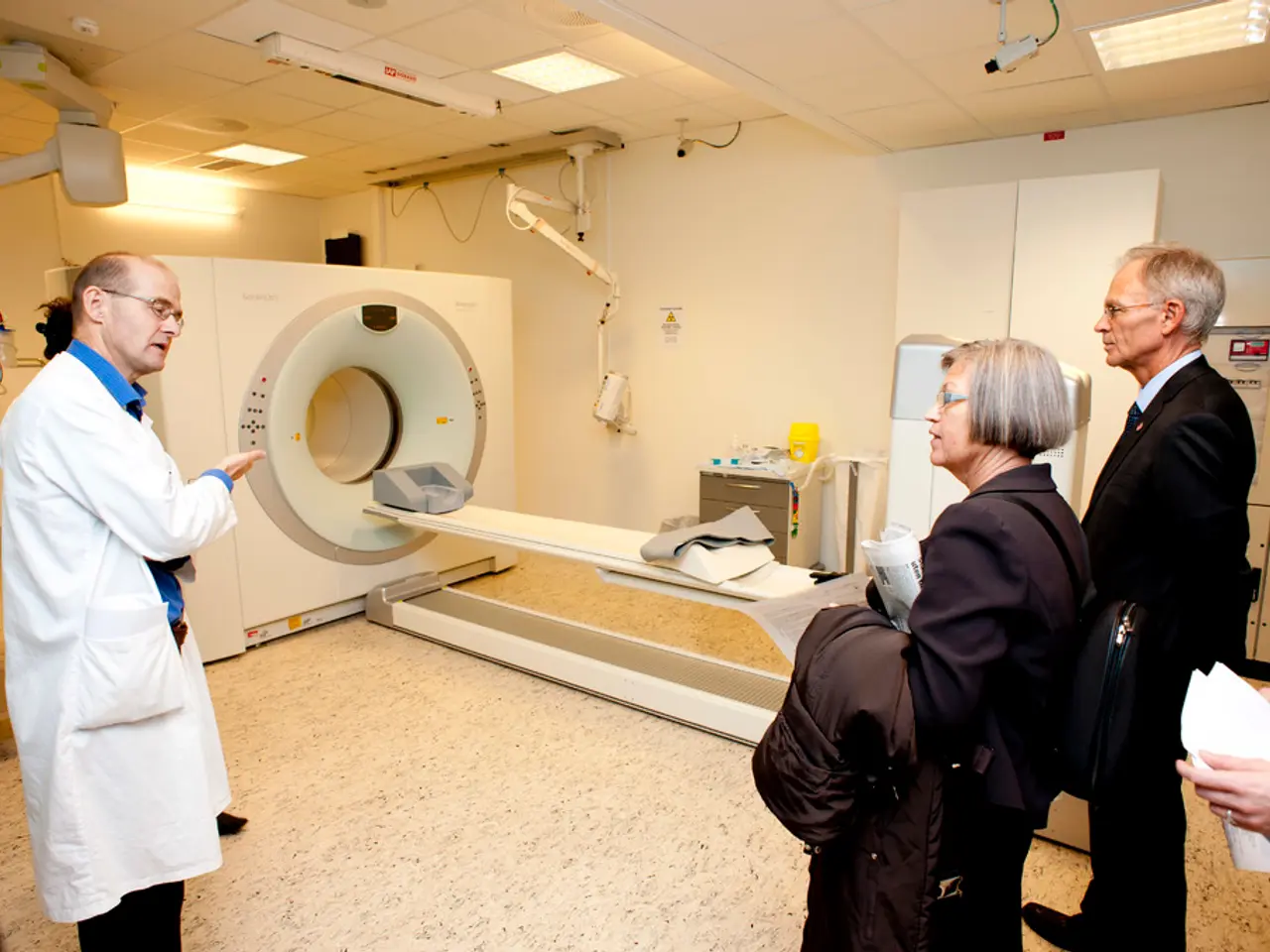Delve into the Realm of Healthcare Professions: Explore Your Path in Health Science
The health science sector is experiencing significant growth, driven by advancements in technology and an increased focus on patient-centered care. Here are the top 7 in-demand health science careers for 2024, each offering unique opportunities and challenges.
1. Medical Doctor (Physician/Surgeon)
Becoming a medical doctor requires extensive medical knowledge, diagnostic skills, patient communication, clinical decision-making, and specialization expertise. The journey includes a pre-med bachelor’s, passing MCAT, medical school, residency, and licensing exams. Key skills include physical exams, formulating treatment plans, educating patients, and managing complex health conditions.
2. Nurse Practitioner (Including Women’s Health and Adult-Gerontology specialties)
Nurse practitioners play a crucial role in patient care, with skills needed in patient assessment, prescribing medications, preventative care administration, diagnosing, and managing chronic diseases. Specializations like Women’s Health and Adult-Gerontology require additional skills in reproductive health, prenatal/postpartum care, and geriatric patient management.
3. Healthcare Administrator/Medical and Health Services Manager
Healthcare administrators and medical and health services managers are essential for the smooth running of healthcare facilities. They require leadership and management skills, understanding healthcare systems, budgeting, compliance, strategic planning, and communication. Growth in this field is projected at 29% from 2023–2033, with median salaries around $117,960.
4. Registered Nurse (RN)
Registered Nurses (RNs) are at the heart of patient care, with core skills including patient care, monitoring health status, administering medications and treatments, and emotional support. High levels of empathy, critical thinking, and communication are essential. Job openings for RNs are projected to remain high with a 6% growth rate.
5. Physical Therapist
Physical therapists help patients recover from injuries and improve physical function. Skills required include patient mobility assessment, rehabilitation planning, manual therapy, and motivational communication. The median salary for physical therapists is around $101,020.
6. Dental Hygienist
Dental hygienists are responsible for oral exams, cleaning teeth, patient education on oral health, and use of dental instruments. Effective communication and precision are essential. The median salary for dental hygienists is approximately $94,260.
7. Medical and Health Services Manager
Medical and health services managers coordinate health services, improve efficiency, and manage staff. They require organizational and analytical skills. The role is projected to grow significantly.
These roles emphasize specialized clinical skills, patient communication, healthcare system knowledge, and in managerial roles, leadership and administrative expertise. Professional certification and education pathways differ according to specific roles.
The key skills required in health science careers include communication, critical thinking and problem solving, technical proficiency, empathy and compassion, attention to detail, teamwork and collaboration, leadership skills, and cultural competence. The educational requirements for careers in health science can vary widely, from a high school diploma to a master's degree or higher.
Other emerging roles in health science include Occupational Therapists, Teletherapy specialists, mental health advocates, and substance abuse counselors. The future of health science careers is bright, filled with innovation and opportunities, as technology advances and societal needs evolve.
- Continuing advancements in technology are expected to play a significant role in the education and self-development of healthcare professionals, providing them with innovative tools to enhance patient care and treatment plans.
- For individuals considering a career in health science, understanding the impact of technology on the environment is crucial since the sector generates a substantial amount of waste, and sustainable practices can contribute to career development and long-term success.
- An increasing focus on preventative care and promoting overall health has necessitated the integration of health science knowledge into various aspects of education, underscoring the importance of understanding health-related topics and applying them in everyday life for a successful career and personal wellbeing.
- As the health science sector grows, it creates opportunities for collaboration between science, technology, and education, with the potential for cross-disciplinary research and development leading to groundbreaking discoveries in both patient care and career development.




